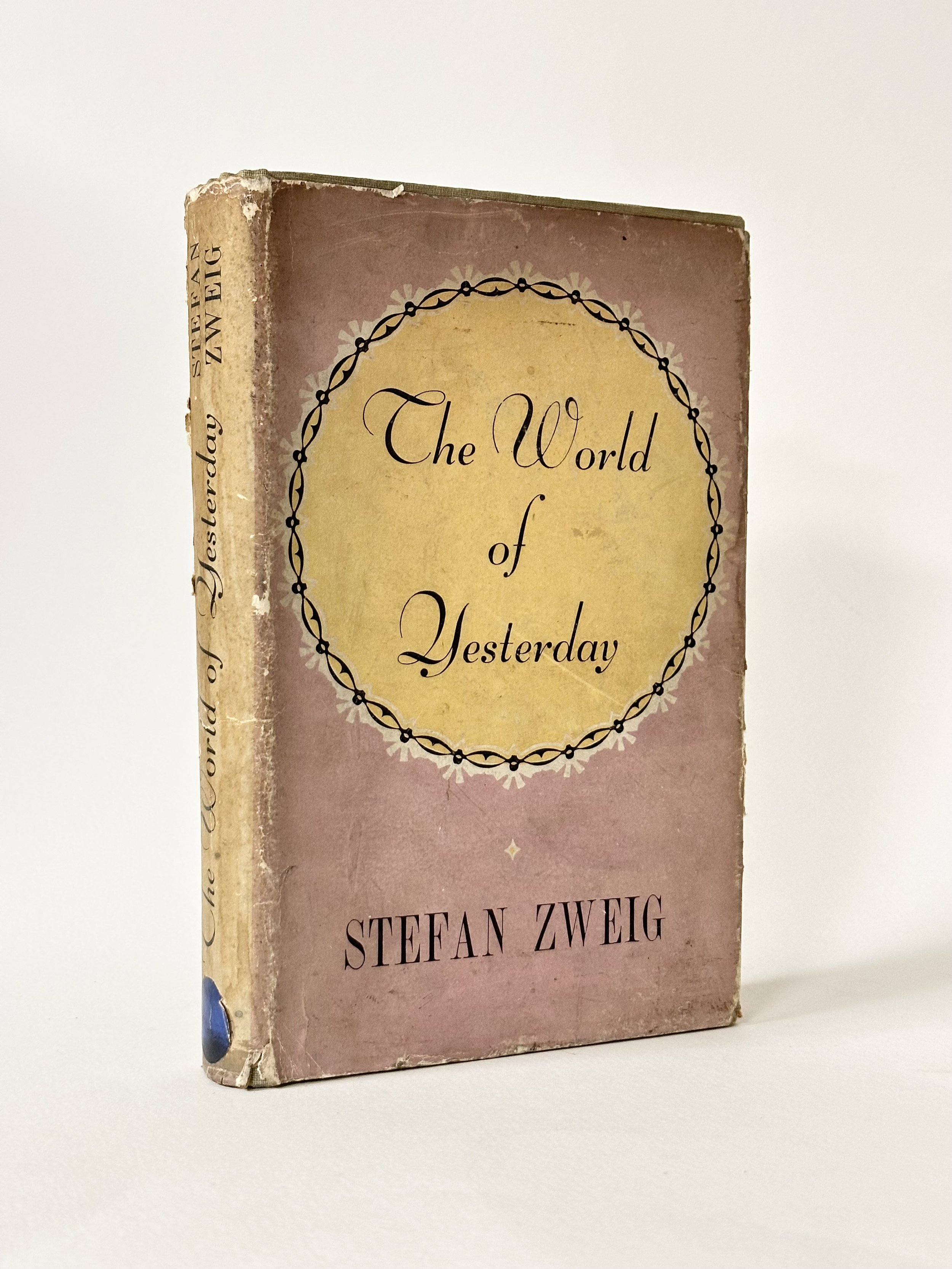 Image 1 of 5
Image 1 of 5

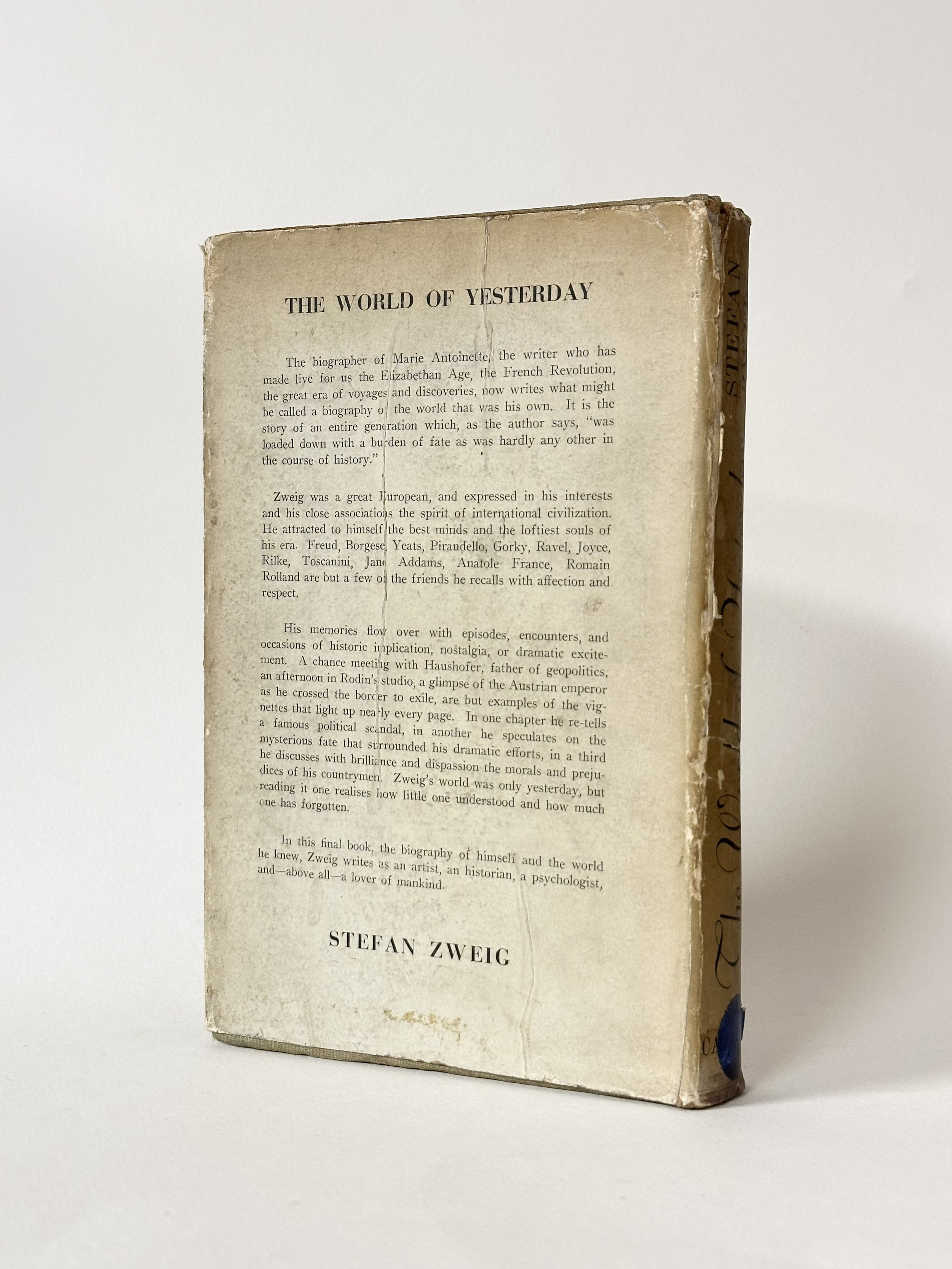 Image 2 of 5
Image 2 of 5

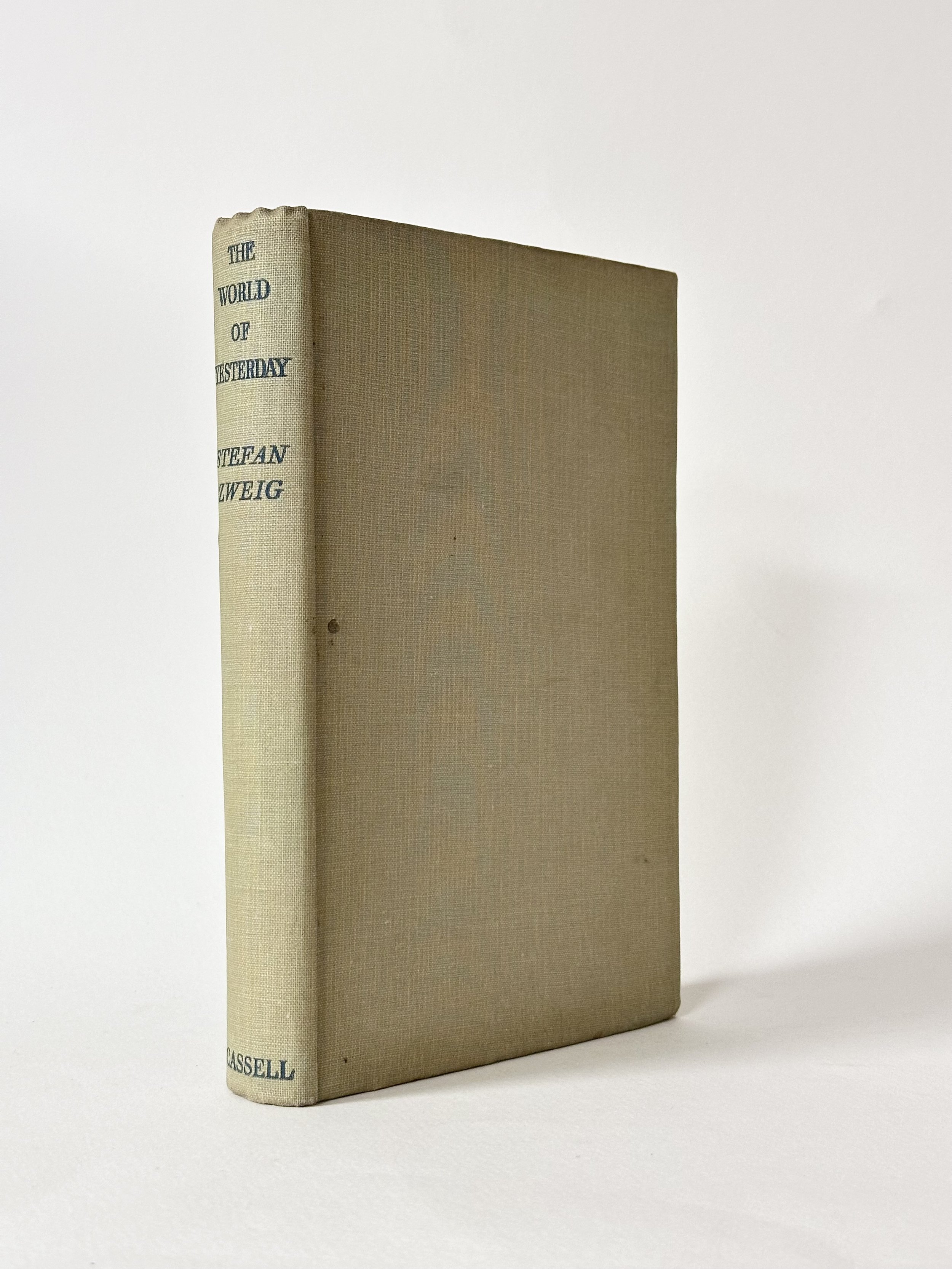 Image 3 of 5
Image 3 of 5

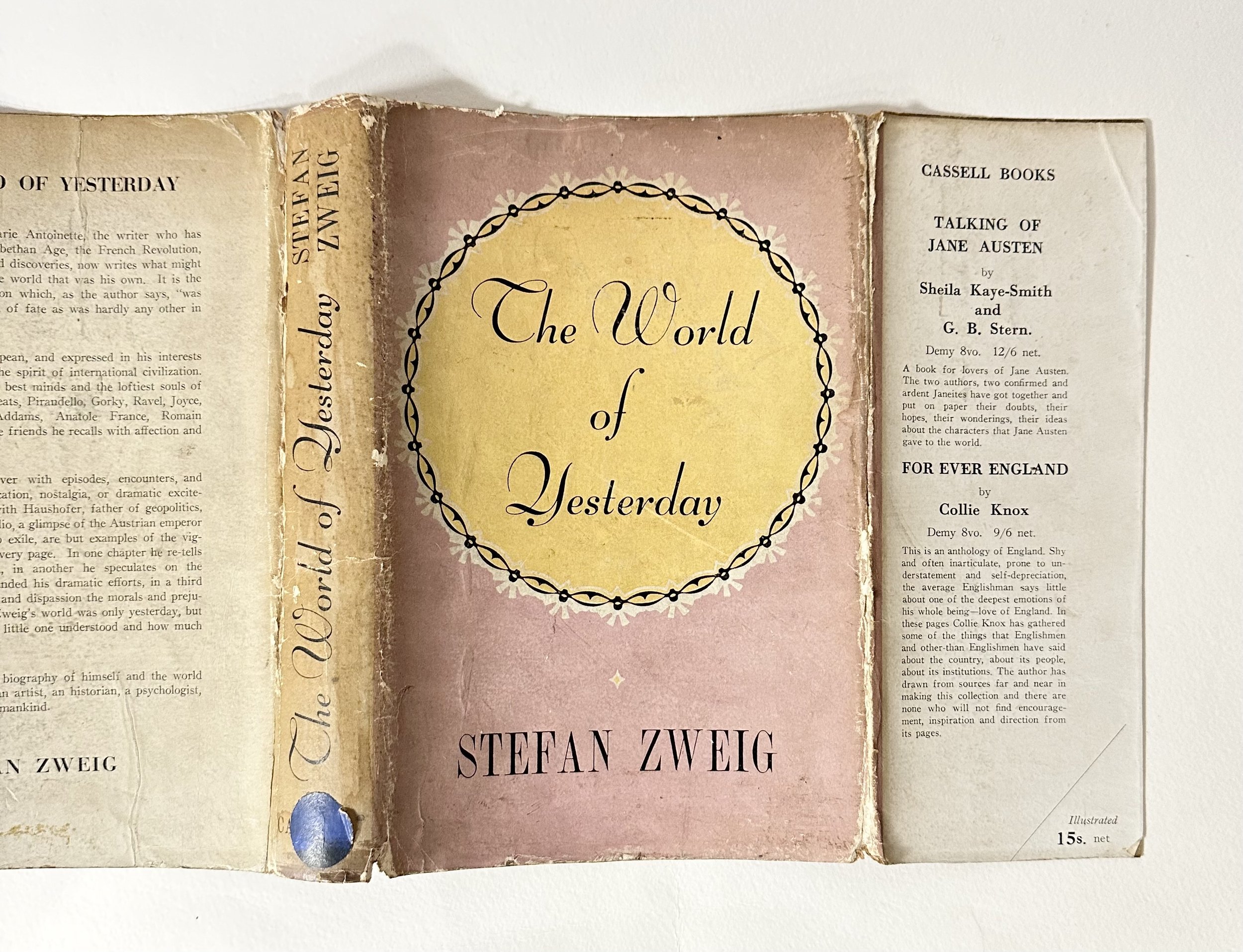 Image 4 of 5
Image 4 of 5

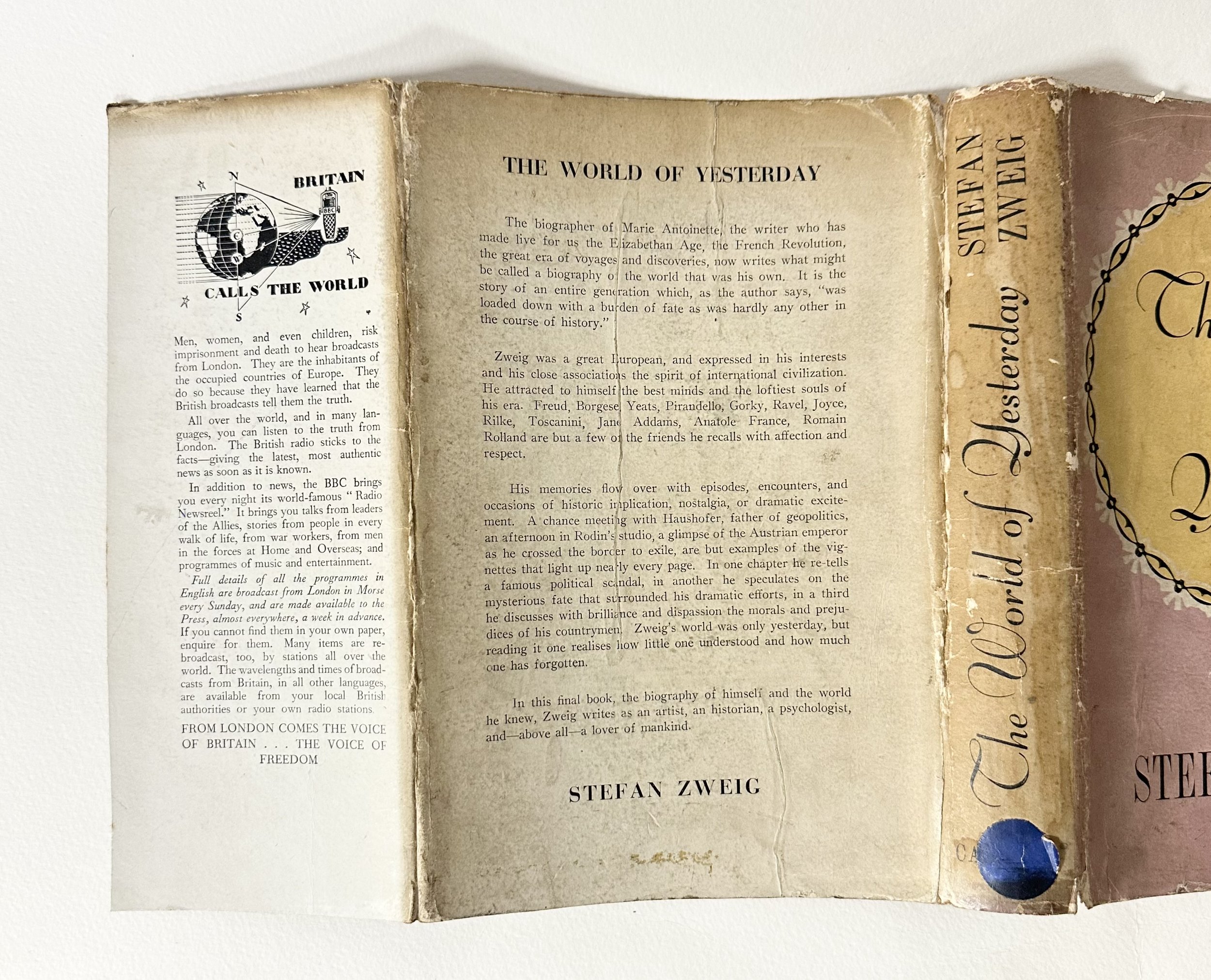 Image 5 of 5
Image 5 of 5






ZWEIG, Stefan. The World of Yesterday
ZWEIG, Stefan. The World of Yesterday. London: Cassell. 1943. 8vo. First British edition. Publisher's cream cloth lettered in dark green to the spine, in the original heavy card dust jacket. A good copy, the cloth externally clean and quite bright, the corners and tips gently bumped, with a minor vertical mark along rear board, which might be a production issue if anything. The binding tight and very gently rolled, and the textblock edges a little spotted with some very light scattered foxing sporadically within. Evidence of a bookplate removed at the front endpaper. The dust jacket unclipped (15s net) and complete, though quite heavily rubbed at most joints, corners and edges, creased to some edges, with blue circular sticker to spine foot. The extra-thick card retains its overall rigidity, though. Scarce.
An important volume of autobiography not just in the Zweig canon but in wider historical circles, too--it is often dubbed the "most important document on the Habsburg Empire". Zweig began writing the memoir in 1934 under the growing, seemingly impregnable influence the Nazis were having on Viennese life. As such, Zweig fled for London and later Brazil, finishing the work there. Proust, Joyce, Freud, Yeats, Pirandello, Gorky, Rilke, Anatole France and countless others feature as Zweig recalls pre- and post-First World War life in Europe. He recounts the rise of Hitler, and the inability of foresight; "it remains an irrefragable law of history that contemporaries are denied a recognition of the early beginnings of the great movements which determine their times". Sadly, by the time he had finished the work, Zweig and his second wife, Lotte Altmann, had become so disillusioned with the present and the future of Europe, their lives could no longer continue. Zweig posted the manuscript to his publisher and, a day later, the pair overdosed.
ZWEIG, Stefan. The World of Yesterday. London: Cassell. 1943. 8vo. First British edition. Publisher's cream cloth lettered in dark green to the spine, in the original heavy card dust jacket. A good copy, the cloth externally clean and quite bright, the corners and tips gently bumped, with a minor vertical mark along rear board, which might be a production issue if anything. The binding tight and very gently rolled, and the textblock edges a little spotted with some very light scattered foxing sporadically within. Evidence of a bookplate removed at the front endpaper. The dust jacket unclipped (15s net) and complete, though quite heavily rubbed at most joints, corners and edges, creased to some edges, with blue circular sticker to spine foot. The extra-thick card retains its overall rigidity, though. Scarce.
An important volume of autobiography not just in the Zweig canon but in wider historical circles, too--it is often dubbed the "most important document on the Habsburg Empire". Zweig began writing the memoir in 1934 under the growing, seemingly impregnable influence the Nazis were having on Viennese life. As such, Zweig fled for London and later Brazil, finishing the work there. Proust, Joyce, Freud, Yeats, Pirandello, Gorky, Rilke, Anatole France and countless others feature as Zweig recalls pre- and post-First World War life in Europe. He recounts the rise of Hitler, and the inability of foresight; "it remains an irrefragable law of history that contemporaries are denied a recognition of the early beginnings of the great movements which determine their times". Sadly, by the time he had finished the work, Zweig and his second wife, Lotte Altmann, had become so disillusioned with the present and the future of Europe, their lives could no longer continue. Zweig posted the manuscript to his publisher and, a day later, the pair overdosed.
